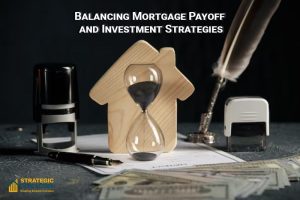
Have you ever wondered if it’s better to pay your mortgage off or invest your hard-earned money for the future?
This common financial dilemma, faced by many Australians, often leaves people questioning their financial priorities, risk tolerance, and market conditions.
In this comprehensive guide, we’ll explore the various factors to consider, ultimately helping you make the best decision for your unique situation.
Key Takeaways
- Evaluate financial priorities when considering mortgage payoff or investing.
- Consider an emergency fund, high-interest debt and retirement savings goals.
- Weigh the potential benefits and drawbacks of both options while assessing risk tolerance, time horizon and mortgage interest rate before making a decision.
Evaluating Your Financial Priorities

Let’s break down the key elements to consider: emergency fund, high-interest debt, and retirement savings.
Emergency Fund
An emergency fund is a safety net designed to cover unexpected expenses and financial emergencies without resorting to high-interest debt. Financial experts generally recommend saving 3 to 6 months’ worth of living expenses in a separate savings account, easily accessible when needed.
Establishing an emergency fund is the first step in your financial journey. Once you have a safety net in place, you can make more informed decisions about whether to pay off your mortgage or invest your surplus income, knowing that you’re prepared for life’s unexpected twists and turns.
High-Interest Debt
Paying off high-interest debts like credit cards and payday loans should be your priority before considering mortgage payoff or investments. High-interest debt is expensive and accrues more interest over time, making it a financial drain and a roadblock to achieving your financial goals.
To tackle high-interest debt efficiently, prioritize paying off the loans with the highest interest rates first. By eliminating this burden, you’ll free up more funds to allocate towards your mortgage or investments, allowing you to make the most of your financial resources.
Retirement Savings
Your retirement savings goals should also play a significant role in your decision-making process. Paying off a mortgage, especially a rental property mortgage, can provide benefits during retirement, such as reduced living expenses and increased rental income.
Investing, on the other hand, can offer long-term growth and potential tax advantages. Thus, it’s vital to balance the potential benefits of both options and see how they fit with your retirement goals.
If you’re in the later years of your mortgage, it may be more advantageous to allocate funds towards retirement accounts or other investments, rather than paying off the mortgage early.

Mortgage Payoff Benefits and Drawbacks

Let’s explore the advantages and disadvantages of mortgage payoff in more detail.
Advantages
One of the most significant benefits of paying off a mortgage is the potential interest savings. Paying off your mortgage early can be a great way to save money. Thousands of dollars in interest payments could be avoided over the length of the loan. Additionally, paying off your mortgage provides peace of mind, knowing that you own your home outright and have eliminated one of your largest monthly expenses.
Moreover, paying off a mortgage can result in improved cash flow. With no mortgage payment to worry about, you’ll have more money available to allocate towards other financial goals, such as investing or saving for other future expenses.
Disadvantages
On the flip side, paying off a mortgage can also have some drawbacks. One of the most significant disadvantages is the opportunity cost of missed investment opportunities. By allocating funds towards mortgage payoff, you may be missing out on potentially higher returns from investing in:
- the stock market
- real estate
- business ventures
- retirement accounts
It’s important to weigh the benefits of paying off your mortgage early against the potential gains from investing in other assets.
Another drawback of paying off a mortgage early is reduced liquidity. Once you’ve paid off your mortgage, the funds used to do so are tied up in an illiquid asset – your home. In the event of a financial emergency or an attractive investment opportunity, accessing these funds may be challenging and time-consuming.
Investment Opportunities and Risks

Tax Implications
The tax implications of investing should not be overlooked, as they can significantly impact your overall returns. Some investments, such as stocks and mutual funds, offer favorable tax treatment, while others, like investment property, come with various tax deductions and benefits. One important aspect to consider is the capital gains tax, which can affect the profitability of certain investments. Additionally, understanding your marginal tax rate can help you make informed decisions when it comes to tax planning and managing your taxable income.
It’s essential to understand the tax implications of your investment choices and how they align with your financial goals and situation. Consulting with a financial advisor or tax professional can help you navigate the complexities of tax planning and ensure that you’re making the most of your investment opportunities.
Rental Yield
Rental yield is a crucial factor in determining the success of your property investment. As we’ve discussed, apartments often provide higher rental yields than houses, making them an attractive option for investors seeking a consistent income stream. However, it’s essential to be cautious of properties with a lower rental yield, as they may not generate the desired returns.
However, it’s important to balance rental yield with capital growth potential when making your investment decision.
Long-Term Strategy
Investing is most effective as a long-term strategy, allowing for compound interest and market fluctuations to work in your favor. A longer time horizon permits you to take on more risk in your investments, as you have more time to recover from potential short-term losses.
When deciding between mortgage payoff and investing, consider your time horizon and financial goals. If you have a shorter time frame, you may want to prioritize paying off your mortgage and reducing debt. In contrast, if you have a longer time horizon, investing in a diversified portfolio may offer the potential for greater returns over time.
Making the Right Decision: Factors to Consider

By taking these factors into account, you can make a well-informed choice that aligns with your financial goals and personal circumstances.
Risk Tolerance
Assessing your risk tolerance is a critical step in determining whether you’re comfortable with the potential risks and rewards associated with investing. Each individual’s risk tolerance varies, influenced by factors such as financial goals, time horizon, and personal circumstances.
To evaluate your risk tolerance, consider the following steps:
- Identify your financial objectives and risk capacity.
- Familiarize yourself with the different types of investments and their associated risks.
- Understand your risk tolerance by assessing your comfort level with potential losses and fluctuations in investment returns.
- Use this understanding to make better decisions about whether to pay off your mortgage or invest in a diversified portfolio that aligns with your risk tolerance.
By following these steps, you can make informed decisions about your investments and ensure they align with your comfort level.
Time Horizon
Your time horizon plays a significant role in your decision-making process. A longer time horizon allows you to take on more risk and potentially achieve higher returns through investment growth. In contrast, a shorter time horizon may warrant a more conservative approach, focusing on reducing debt and mortgage payoff.
When evaluating your time horizon, consider your current financial situation and future goals. If you’re nearing retirement or have short-term financial objectives, prioritizing mortgage payoff may be the better option. However, if you have a longer time horizon and are comfortable with the risks associated with investing, a diversified portfolio may be more suitable for achieving your long-term goals.
Mortgage Interest Rate
Comparing your mortgage interest rate to potential investment returns is another crucial factor to consider when making your decision. If your mortgage interest rate is higher than the expected return on investments, it may be more beneficial to prioritize paying off your mortgage. On the other hand, if potential investment returns are higher than your mortgage interest rate, investing may be a more lucrative option.
Keep in mind that interest rates can fluctuate, and investments carry inherent risks. It’s essential to weigh the potential benefits and drawbacks of both options and consider how they align with your financial goals and risk tolerance. Consulting a financial professional can provide valuable insight and guidance tailored to your unique situation.
Balancing Mortgage Payoff and Investment Strategies

Let’s delve into the simultaneous approach and refinancing options to help you find the right balance for your financial situation.
Simultaneous Approach
One way to balance mortgage payoff and investment strategies is by adopting a simultaneous approach, where you make additional payments towards your mortgage while also investing in other assets. This approach allows you to make progress towards both financial goals, reducing debt and growing wealth over time.
However, the simultaneous approach requires careful planning and coordination, as well as a clear understanding of your financial goals and risk tolerance. It’s essential to monitor your progress and adjust your strategy as needed to ensure that you’re making the most of your financial resources.
Refinancing Options
Refinancing your mortgage to a lower interest rate or shorter term may be another option for balancing mortgage payoff and investment strategies. By reducing your interest rate, you can free up more funds to allocate towards investments, potentially increasing your overall return on investment.
Before opting for refinancing, it’s essential to consider the costs associated with this option, such as closing costs, and weigh them against the potential benefits. Consulting with a financial professional can help you determine if refinancing is the right choice for your financial goals and personal circumstances.
Consulting Financial Professionals

Summary
In conclusion, deciding between paying off your mortgage or investing is a complex decision that requires careful consideration of various factors, including your financial priorities, risk tolerance, and time horizon. By evaluating these factors and consulting financial professionals, you can make well-informed decisions that align with your financial goals and personal circumstances. Remember, the right choice for you may not be the same for everyone, so take the time to understand your unique situation and make the best decision possible.
Frequently Asked Questions

Is it worth paying off mortgage now?
Paying off your mortgage early can save you thousands of dollars in interest, build equity faster, and provide peace of mind by becoming debt-free faster.
However, it may not be for everyone as they may be better off focusing on other debts or investing the money instead. Ultimately, it is up to the individual to decide if it is worth paying off their mortgage now.
What happens when I pay my mortgage off?
Paying off your mortgage is a major milestone — you own your home free and clear. You may be able to pay down other debt, save for retirement or splurge on luxuries, however, you’ll still need to pay property taxes and keep homeowners insurance in effect.
Contact your lender directly to discharge the loan agreement and verify your name is off any home loan. With the documents in hand, you can have money freed up for other purposes like taking a holiday, splurging, investing, or renovating.
Is there any downside to paying off your mortgage?
Paying off your mortgage can have some downsides, such as forfeiting any tax benefits associated with the loan and risking loss of property and credit if not paid off by the end date.
However, there are also some major advantages to paying off your mortgage early. These include reducing the amount of interest you pay over the life of the loan, freeing up cash flow for other investments, and eliminating the risk of foreclosure.
How much should I save in an emergency fund before considering mortgage payoff or investing?
Save an amount equivalent to 3-6 months’ worth of living expenses in an emergency fund before considering mortgage payoff or investing.
This is a good rule of thumb to follow when it comes to financial planning. Having an emergency fund in place will help you weather any unexpected financial storms that may come your way. It will also give you peace of mind.
What is the benefit of paying off high-interest debt before focusing on mortgage payoff or investing?
Paying off high-interest debt first can save you money on interest and allow you to put more money towards mortgage payoff or investments, giving you greater financial security.
By focusing on high-interest debt first, you can reduce the amount of interest you pay and free up more money for other financial goals. This can help you build a stronger financial foundation and give you greater peace of mind.












